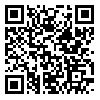مجله رویش روانشناسی از دادن گواهیهای کاغذی معذور است. لطفا تقاضا نکنید. همه گواهی ها در صفحه شخصی کاربران موجود است.
year 13, Issue 10 (Winter 2024-2025 2024)
Rooyesh 2024, 13(10): 111-120 |
Back to browse issues page
Ethics code: IR.IAU.RASHT:REC:1402.003
Download citation:
BibTeX | RIS | EndNote | Medlars | ProCite | Reference Manager | RefWorks
Send citation to:



BibTeX | RIS | EndNote | Medlars | ProCite | Reference Manager | RefWorks
Send citation to:
Eghdampanah Foumani K, Moghtader L, Asadi mojreh S, Akbari B. (2024). The effectiveness of schema therapy on the tolerance of ambiguity and difficulty in regulating the emotions of drug addicts. Rooyesh. 13(10), 111-120.
URL: http://frooyesh.ir/article-1-5374-en.html
URL: http://frooyesh.ir/article-1-5374-en.html
1- PhD Student, Department of Psychology, Rasht Branch, Islamic Azad University, Rasht, Iran.
2- Assistant Professor, Department of Psychology, Rasht Branch, Islamic Azad University, Rasht, Iran. ,moghtaderleila@yahoo.com
3- Assistant Professor, Department of Psychology, Rasht Branch, Islamic Azad University, Rasht, Iran.
4- Professor, Department of Psychology, Rasht Branch, Islamic Azad University, Rasht, Iran.
2- Assistant Professor, Department of Psychology, Rasht Branch, Islamic Azad University, Rasht, Iran. ,
3- Assistant Professor, Department of Psychology, Rasht Branch, Islamic Azad University, Rasht, Iran.
4- Professor, Department of Psychology, Rasht Branch, Islamic Azad University, Rasht, Iran.
Abstract: (1286 Views)
The purpose of the present study was to investigate the effectiveness of schema therapy on the tolerance of ambiguity and difficulty in regulating the emotions of drug addicts. The research method was semi-experimental with a pre-test-post-test design with a control group and a two-month follow-up period. The statistical population of the study included substance-dependent patients who were referred to addiction treatment centers in Tehran in 1402. Among these, 34 people were selected by the available sampling method and were randomly divided into experimental (17 people) and control (17 people) groups. Research tools included the Ambiguity Tolerance Questionnaire (ATQ) by McLean (2009) and Difficulty in Emotion Regulation (DERS) by Gratz and Roemer (2004). Schema therapy was performed on the experimental group in 10 sessions of 90 minutes with the frequency of one session per week. Analysis of variance with repeated measurements was used to analyze the data. The results showed that there was a significant difference between the two groups and schema therapy increased the tolerance of ambiguity (p<0.05) and reduced the difficulty in emotion regulation (p<0.05) in substance-dependent people. It also had a lasting effect in the follow-up period (p>0.05). According to the obtained results, addiction specialists can use schema therapy to emphasize increasing the tolerance of ambiguity and reducing the difficulty in regulating the emotions of drug addicts.
Type of Article: Research |
Subject:
Clinical Psychology
Received: 2024/05/8 | Accepted: 2024/07/6 | ePublished: 2024/12/30
Received: 2024/05/8 | Accepted: 2024/07/6 | ePublished: 2024/12/30
Send email to the article author
| Rights and permissions | |
 |
This work is licensed under a Creative Commons Attribution-NonCommercial 4.0 International License. |





